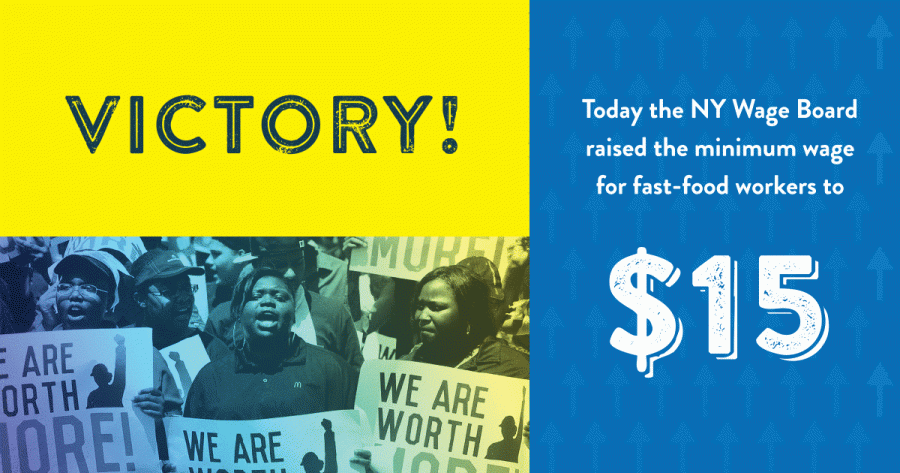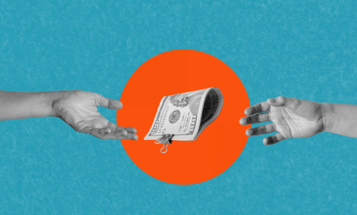
The NY Wage Board Delivers for Fast Food Workers
Setting a new milestone in the fight for fair pay, the New York fast food wage board today recommended a wage increase in a series of steps to $15 an hour by 2018 in New York City and by 2021 in the rest of the state. The new wage will apply to fast food businesses with 30 or more locations.
When my colleague Catherine Ruetschlin testified before the Wage Board on Long Island, she pointed out:
The fast food industry is the main driver of compensation inequality in the most disparate sector of the economy, with a CEO-to-worker pay ratio in 2013 of over 1000-to-1. The pay disparity in the fast food industry is an extreme outlier, even in an economy where inequality overall has become an increasing point of concern. The outsized ratio is largely driven by the poverty-level wages paid to the industry’s front-line workforce. It is also a prime example of the trend since the Great Recession that shows earners at the very top of the income distribution capturing all of the gains of economic growth and leaving the rest of the population behind.
But while fast food may be an extreme case, it is hardly the only industry – in New York or nationwide – where front-line workers are underpaid and inequality is metastasizing. In fact, our economy is increasingly built on job growth in the most unequal industries: a trend that concentrates more and more income at the top and makes it even more difficult for working people to share in the benefits of economic growth.
That’s why the push to raise wages won’t stop with fast food –or with New York. On Tuesday, the Los Angeles County Board of Supervisors voted to increase the local minimum wage to $15 by 2020.
Yesterday federal contract workers, including employees who serve food at Congress's own cafeterias, rallied on Capitol Hill for a Good Jobs executive order that would raise their pay and secure college bargaining rights.
And today, members of the Congressional Progressive Caucus are introducing legislation to raise the federal minimum wage to $15 an hour for all job categories nationwide. Although the chances of a steep wage hike being enacted by the Republican-led House and Senate are slim indeed, the proposal is a sign of the movement’s growing momentum.
If fast food workers in New York can win livable pay, there’s hope for everyone earning too little to make ends meet—and for our economy as whole.




